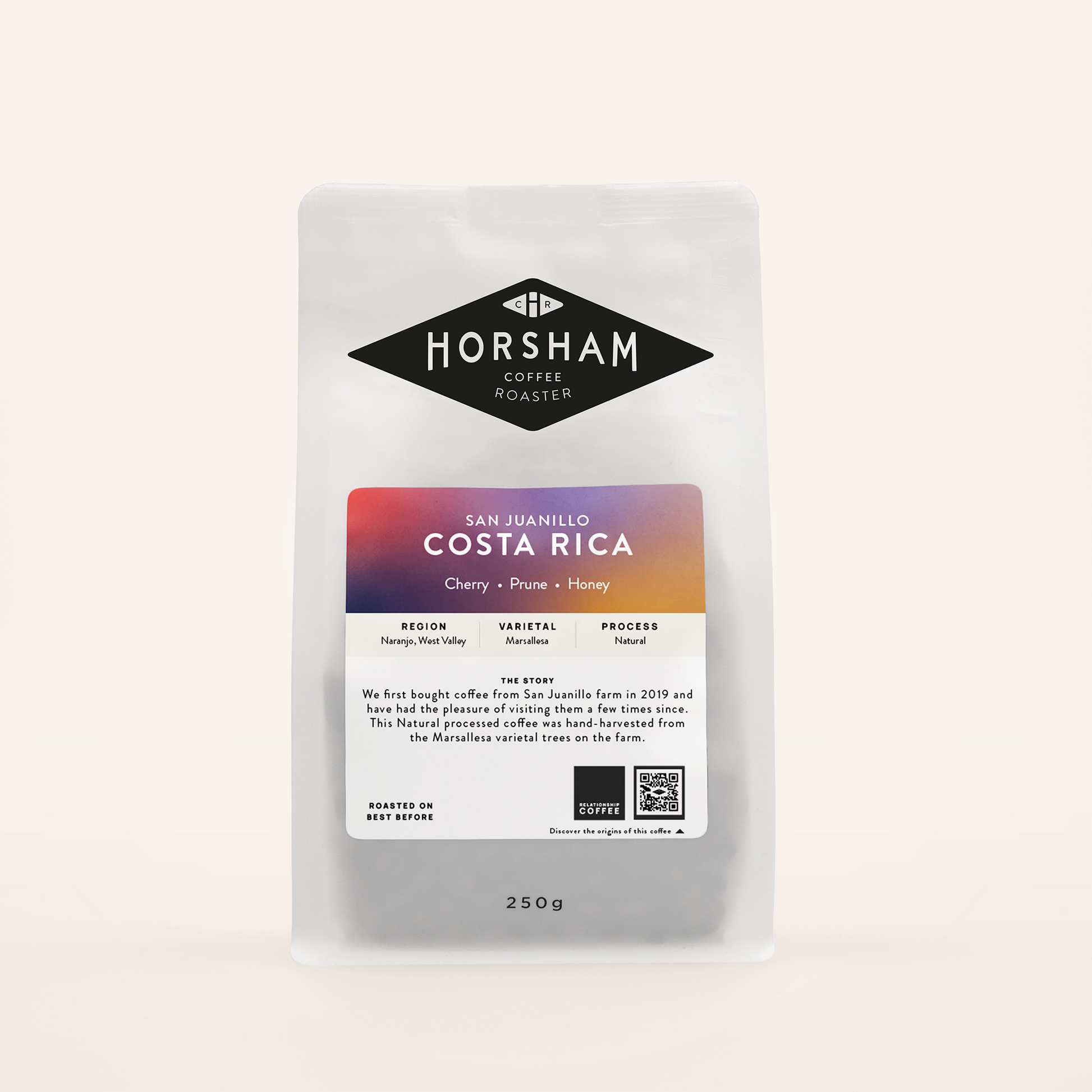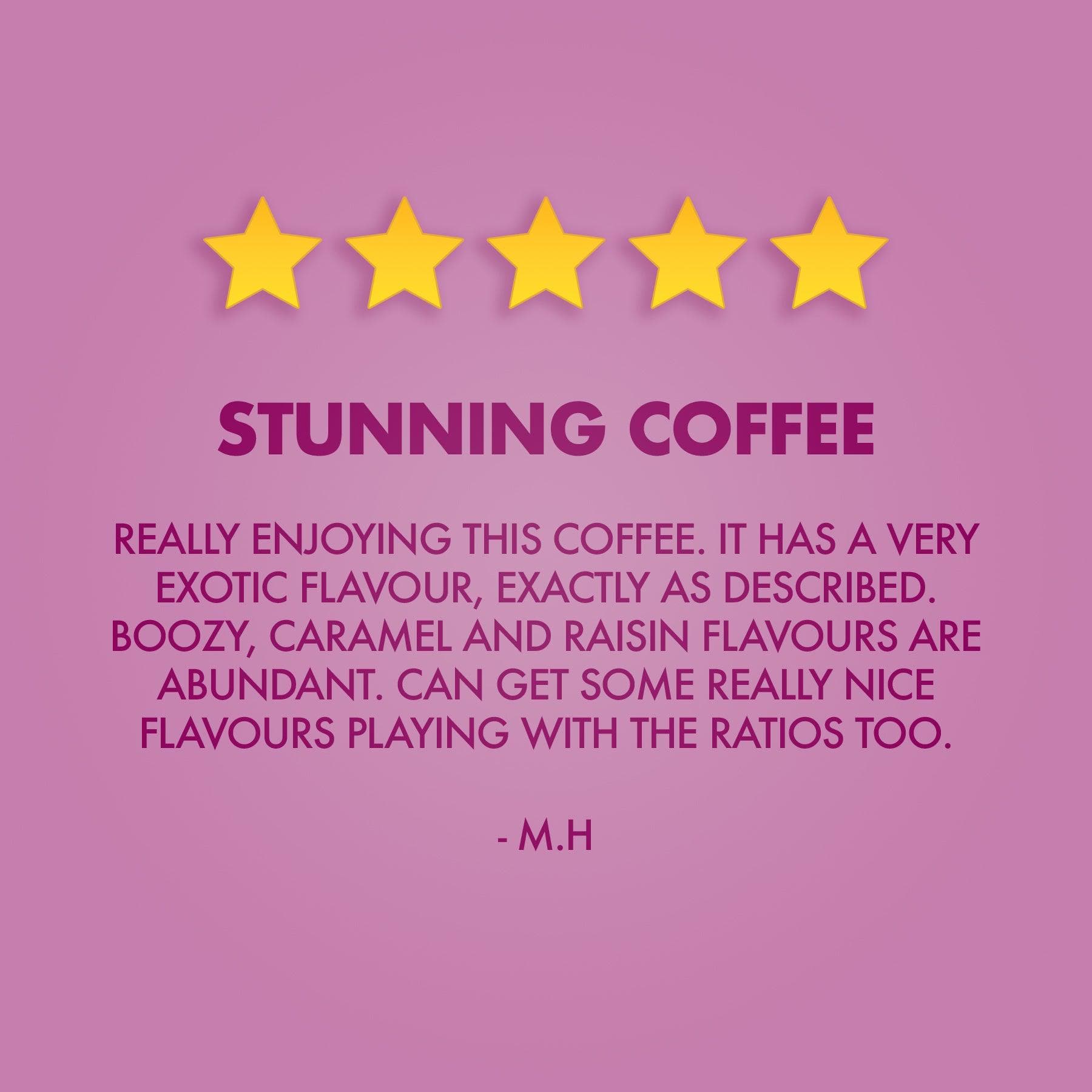San Juanillo Natural
San Juanillo Natural
Sorry - this coffee is currently not available.
Sign up below to be notified if we get a fresh crop, and for news about new and exciting coffees.
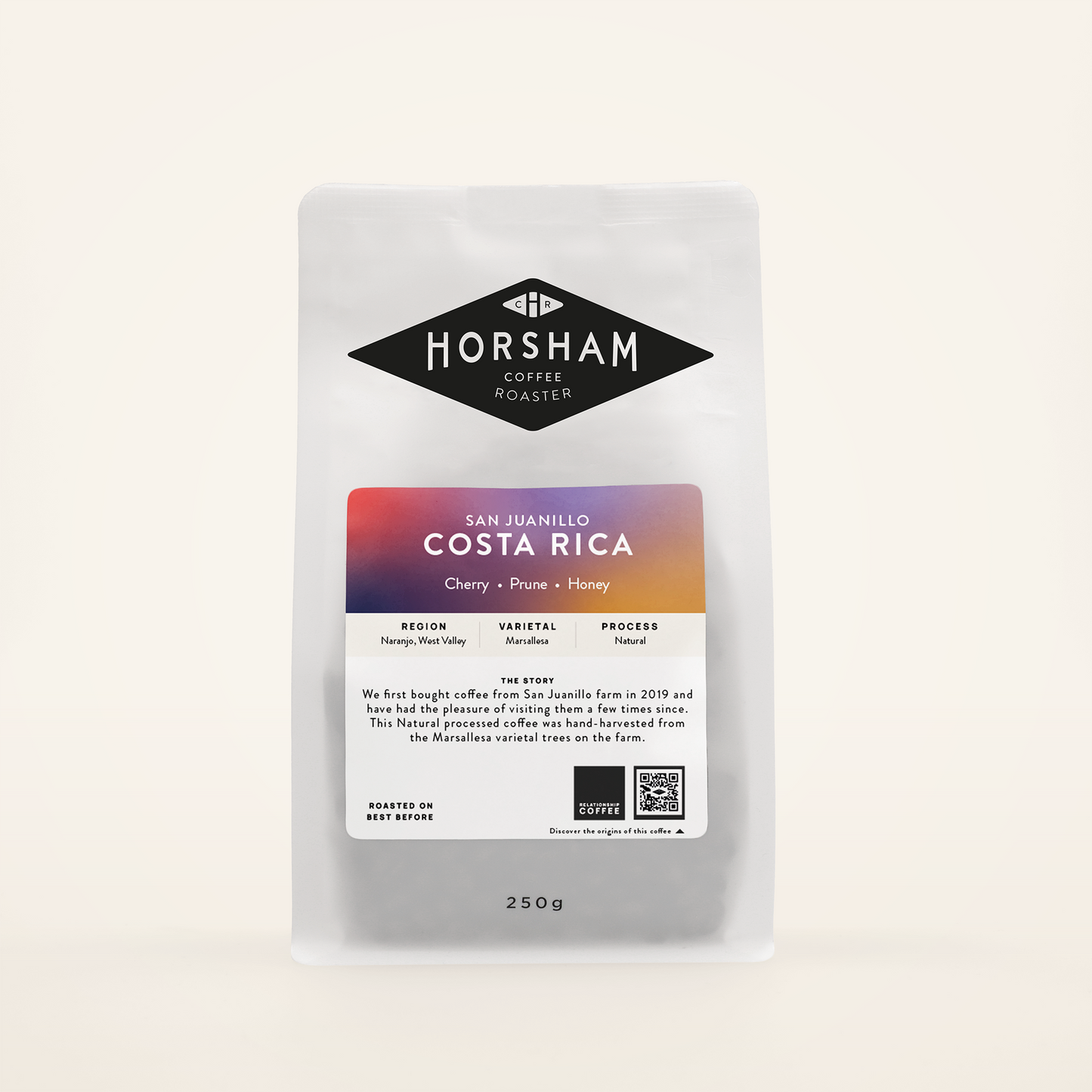
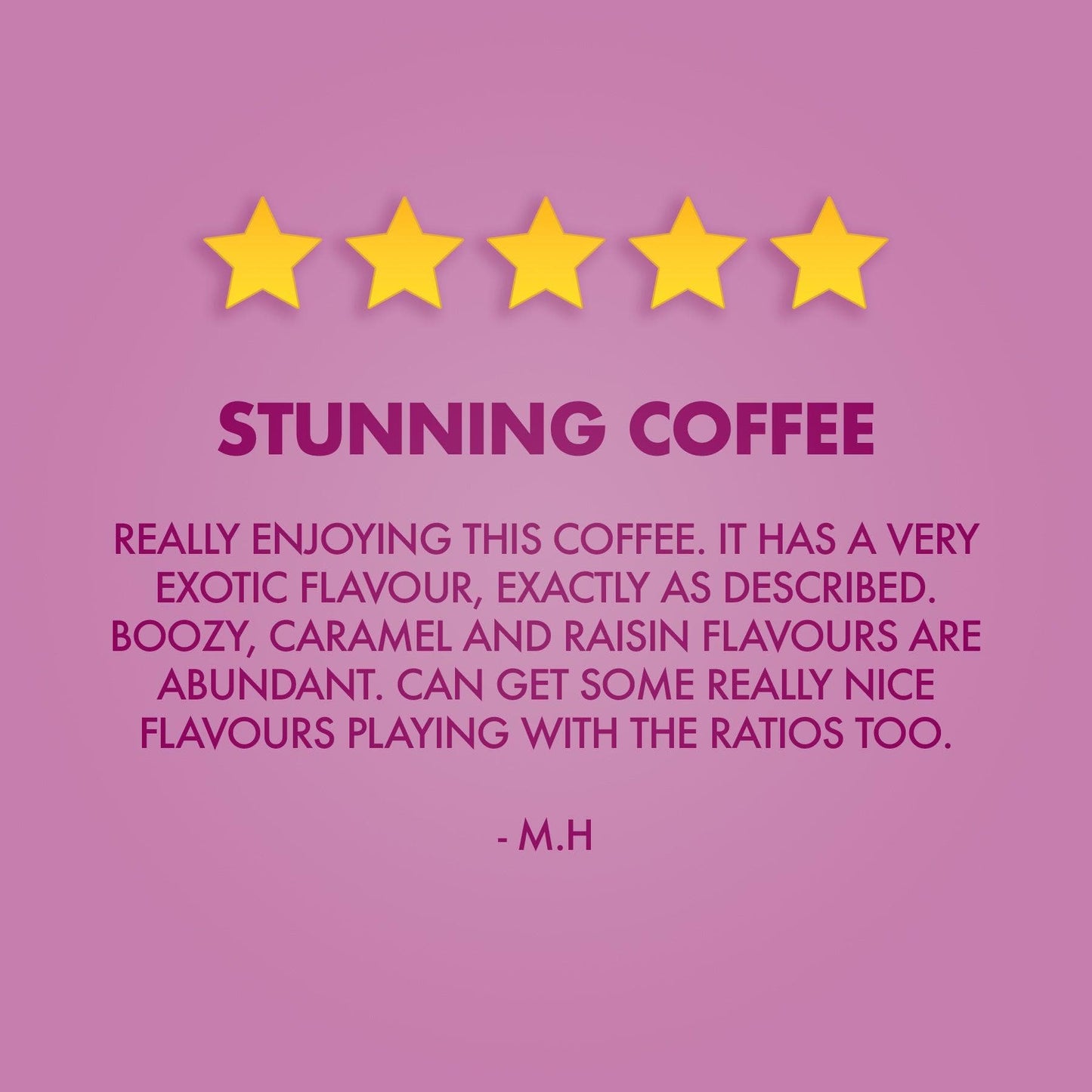
-
About San Juanillo Natural | Costa Rica
Our Costa Rican coffees are sourced directly by us from several dedicated, small producers. We've been buying this stunning natural processed Marsellesa varietal coffee from San Juanillo for 5 years.
Cherry was hand harvested from Marsellesa varietal trees and laid to dry on raised tables under cover. The farm is dedicated to positively impacting the environment with only natural fertilizers, with wildflowers encouraged to be grown between the coffee trees to stimulate the local ecosystem.
This is a juicy, fruity natural with tasting notes that include cherry, prune, honey and a red apple like acidity. -
Coffee Info
Tasting Notes: Cherry | Prune | Honey
Processing Method: Natural
Varietal: Marsallesa
Importer: Horsham Coffee Roaster / IAC
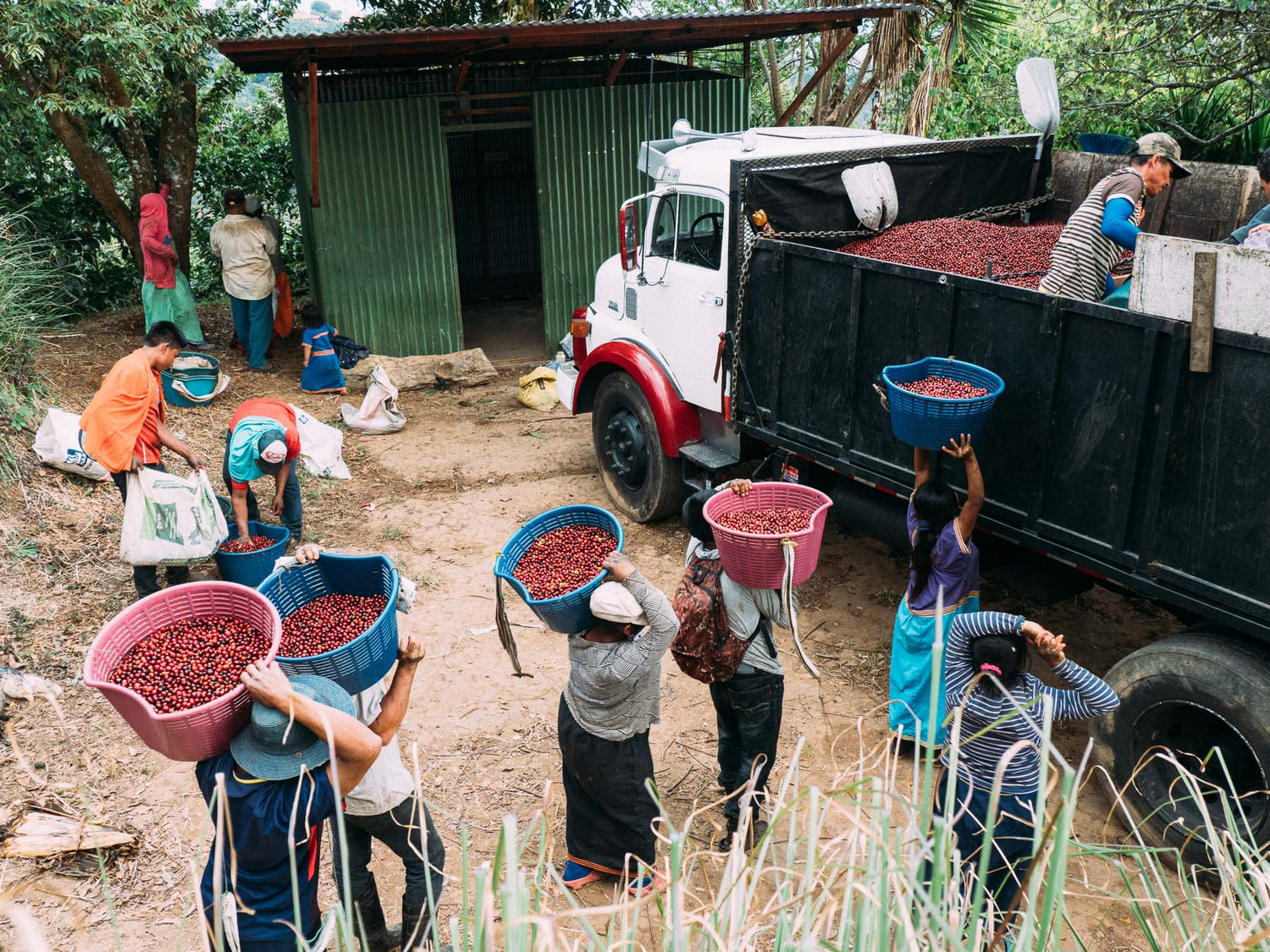
The Producer
San Juanillo farm
Tomas Gutierrez and Allan Vargas bought the farm in 2007 with the intention of regenerating the landscape and soil and planting new and exciting varieties. We first bought coffee from San Juanillo farm in 2019 and have visited several times. They grow various varietals using natural farming methods that encourage insect and bird life.
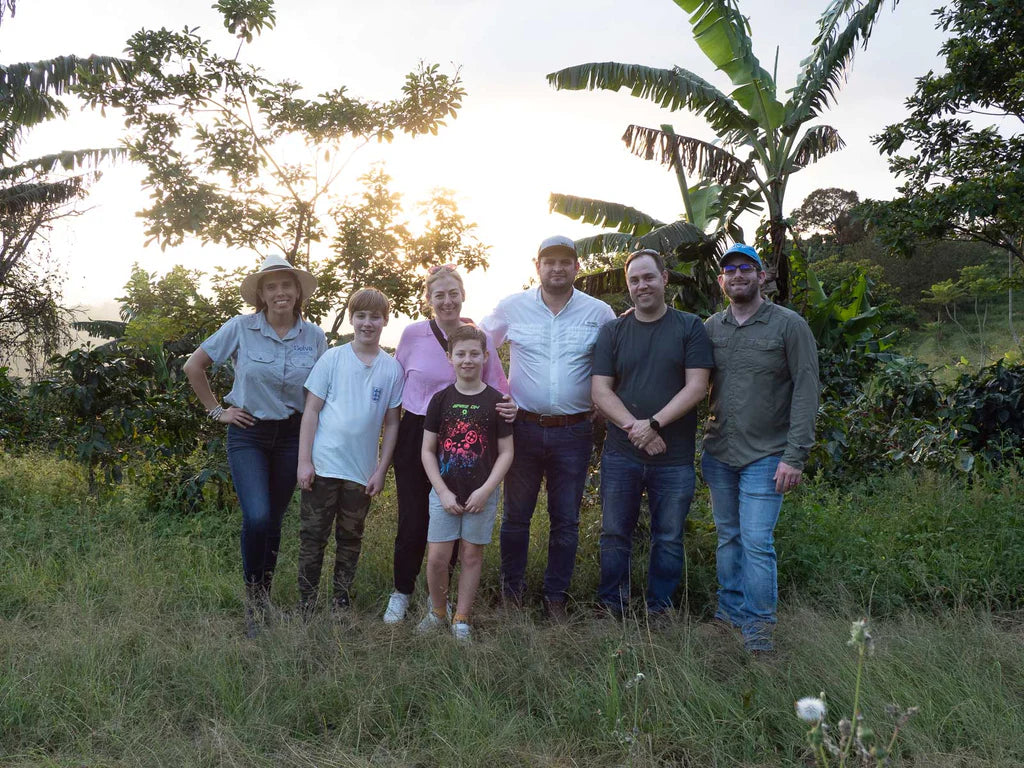
Coffee Origin
Costa Rica 🇨🇷
Costa Rican farmers are known for their tendency to experiment with various post harvest processing method and for planting rare and interesting coffees, such as SL-28 and Geisha. We've been buying our Costa Rican coffees direct from the same producers for several years with the help of Selva coffee.
We clean up after ourselves.
Ecommerce deliveries have a carbon footprint. That's why we support verified projects that remove carbon from the air.



Every delivery’s carbon footprint is calculated based on weight, shipping method, and distance traveled. We neutralize these emissions by purchasing verified carbon removal credits from groundbreaking projects. When you add a contribution to your order, 100% of that money is used to pay for additional carbon removal.



With your purchase, you’ll join a community of proactive merchants and customers dedicated to a sustainable future. Together, we've removed emissions for over 67 million deliveries and removed over 48 thousand tonnes of carbon.

We work with a network of pioneering carbon removal companies that have been vetted by the commerce platform Shopify.

I'm the kind of person who almost never goes back to the same coffee twice; I like variation and a constantly changing cup of coffee. However, these beans are the most moreish and delicious I've ever had. Not only is it a mouthful of flavours on the way down, it leaves you with a delightful aftertaste when done which is like a reminder that you should go and make another cup. I've bought a bag for a friend and now it's out of stock but I'll be checking back very regularly for more. I brewed them in a pourover each time so I can't speak to how versatile they are.
An absolute delight.
Brew at low pressure for hazelnut cherry & chocolate.
So juicy,lovely coffee
very good coffee.
Regular drinker of San Juanillo in its various slight different processes, it’s my perfect cup . Smooth but rich and layered . Use aeropress with steamed milk . Brilliant thankyou
